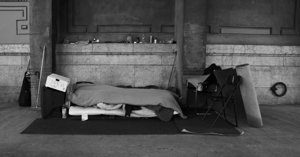In nonprofit organizations, leveraging technology effectively is crucial for achieving mission objectives, optimizing operations, and maximizing impact. Nonprofit software solutions offer a range of tools and functionalities tailored to the unique needs of charitable and social impact organizations. However, selecting the right nonprofit software requires careful consideration of factors such as organizational goals, budget constraints, user requirements, scalability, and data security. This comprehensive guide will explore key considerations, essential features, popular solutions, and best practices for choosing nonprofit software that aligns with your organization's mission and objectives.
Choosing with Purpose: A Guide to Selecting Nonprofit Software
Topics: nonprofit software solutions
Immigrant and refugee rights have long been an issue of critical importance for social workers in the United States. Over 100 years ago, Jane Addams and Edith Abbott established social work as a noble profession while working in settlement houses that served as centers of residence and social services for migrants who had recently arrived in large numbers to work in America. Charitable organizations and religious and ethnic associations have long worked to facilitate the wellbeing and integration of migrants and displaced persons.
Topics: what social workers do, immigration
Transforming Governance: The Impact of Municipal Government Software
In present-day technology, municipalities are tasked with the obligation of efficiently coping with diverse components of governance, starting from public services and infrastructure to civic engagement and regulatory compliance. With the appearance of a superior generation, municipal governments are turning more and more to software program answers to streamline operations, enhance transparency, and enhance service shipping. This blog explores the transformative effect of municipal government software programs and the way they're reshaping the panorama of governance.
Topics: Government
While other major American cities continue to see their homeless populations grow relentlessly, over the past dozen years Houston has driven down its homeless population by 64%, including a 17% reduction just last year. There used to be 8,500 people on the streets on any given night, but now Houston’s homeless population stands at 3,200, with all but 1,200 of them in shelters. What has changed? What did Houston do differently to solve a homeless problem that plagued the city for thirty years? What can other great cities across the country learn from the Houston response model?
Topics: Homeless & Food Pantry
Excellence in Community Service: Wayne County Juvenile & Youth Services Department
Juvenile and Youth Services Department and Third Judicial Circuit Court - Juvenile Division Selected to Participate in Transforming Juvenile Probation Certificate Program!
Wayne County is excited to announce that the Juvenile and Youth Services Department and the Third Judicial Circuit Court - Juvenile Division have been chosen to participate in the prestigious Transforming Juvenile Probation Certificate Program in Washington D.C.! This achievement reflects the department's dedication to excellence and commitment to serving the community.
Topics: Press Releases
Caring for Wisdom: Aged Care Management Software for Enhanced Support
As our populace ages, the demand for the best elderly care services is regularly growing. In reaction to this developing want, elderly care facilities and service companies are turning to revolutionary answers to ensure the well-being and comfort of aged individuals. Aged care management software has emerged as a transformative device, providing comprehensive aid to organizations tasked with managing the complicated needs of older populations. In this weblog, we're going to discover the significance of the elderly care management software program and the way it gives complete support for both the elderly and the people who care for them.
Topics: Elderly/Aging Long Term Care
Case Management Software's Impact on In-Patient Mental Health Services
The integration of technology has become a catalyst for transformative change in the mental health industry. Among the innovations at the forefront is case management software, a dynamic solution poised to redefine the contours of in-patient mental health care. This software goes beyond conventional approaches, acting as a guiding force that streamlines processes, enhances communication, and places a premium on the individualized well-being of in-patients. In the following exploration, we delve into the profound impact of case management software on in-patient mental health services, navigating the nuanced intersection of technology and compassionate care.
As we embark on this journey, we must recognize the significance of in-patient mental health care. The intricate nature of mental health conditions demands a holistic and personalized approach, and case management software emerges as a promising tool to meet these unique needs. This discussion aims to uncover the multifaceted influence of case management software, illuminating how it optimizes administrative tasks and humanizes the patient experience, fostering a more empathetic and efficient ecosystem within in-patient mental health services.
Topics: mental health
Every child can feel its pull. Every parent is concerned. Social media landed in everyone’s backyard like the spaceship in "Close Encounters". We didn’t know what it was or where it came from, but we couldn’t take our eyes away. We fell under its spell and remain captivated. We still don’t know why it came or what it’s here for. But we have learned that it is not as benign as it first appeared. We now know it can harm us, and it will if we let it.
Topics: mental health, social issues
Nursing Home Excellence: Unleashing the Potential of Nursing Home Software
In the realm of eldercare, nursing homes play a vital role in providing comprehensive support and specialized care to senior residents. With the advancement of technology, nursing home software has emerged as a powerful tool to enhance operational efficiency, improve resident care, and promote overall excellence in nursing home management. This blog delves into the myriad benefits, essential features, real-world applications, and best practices associated with nursing home software, highlighting its transformative impact on the quality of care and resident satisfaction.
Topics: Elderly/Aging Long Term Care
Decoding Efficiency: Understanding the Core of a Case Management System
In today's complex and fast-paced environments, organizations across various industries rely on efficient management systems to streamline processes, enhance productivity, and achieve better outcomes. One such crucial system is Case Management, which plays a pivotal role in managing workflows, data, and resources effectively. This blog delves into the core concepts, key components, benefits, and best practices of a Case Management System (CMS), shedding light on how it contributes to organizational efficiency and success.
Topics: case management software











